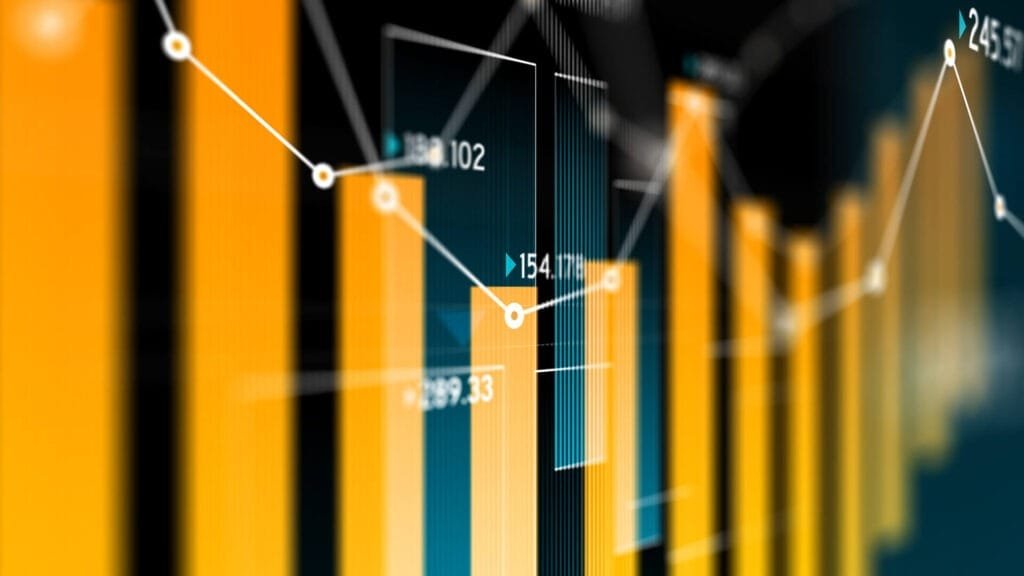The Ghana Stock Exchange (GSE) has continued its bullish momentum in the final month of the 3rd quarter in September 2024, demonstrating strong performance across various sectors, especially in financial stocks.
The GSE Financial Stock Index recorded an impressive 15.19% year-to-date (YTD) gain, reflecting the growing investor confidence in financial institutions amid limited investment alternatives. This surge marks a significant period for the stock market as it outperforms several other investment options such as Treasury bills and government bonds, offering lucrative opportunities to investors.
The GSE Composite Index saw a marginal increase of 0.22% in September, closing at 4,369.44 points. This brought the index’s YTD gain to 39.59%, illustrating the continued growth of the Ghanaian equities market.
The GSE’s Financial Stock Index, however, outpaced the broader market with a 3.41% rise in September alone, contributing to its notable 15.19% YTD gain. This performance signals the growing strength of Ghana’s financial stocks, as well as an increasing preference among investors for equities over fixed-income securities.
The GSE’s overall growth can be attributed to the outstanding performance of both the ICT and financial sectors, which were pivotal in driving investor interest and market liquidity. MTN Ghana, in particular, played a dominant role in shaping market dynamics with its immense trading volume and market capitalization, while key banks such as Standard Chartered, GCB Bank, and Access Bank also made significant contributions to the financial sector’s impressive performance.
Growing Impact of Financial Stocks in GSE’s Growth
The financial sector’s 15.19% YTD gain underscores its crucial role in the GSE’s overall market performance. Stocks from top financial institutions such as Ecobank Ghana (EGH), GCB Bank (GCB), and CalBank (CAL) were significant contributors to the sector’s success.
By the end of September, Ecobank Ghana had recorded a traded value of GH¢31.15 million, while GCB Bank and CalBank posted GH¢9.1 million and GH¢8.3 million, respectively. These figures highlight the continued confidence in Ghana’s financial institutions, despite challenges faced by the sector in recent years.

Investor interest in financial stocks has been driven by the relatively higher returns offered by the equities market compared to traditional investment options. Treasury bills and government bonds have seen yields stagnate or decline in recent months, leading investors to turn to the stock market for better returns.
With top-tier banks like StanChart, GCB, and Access Bank delivering strong financial performances, the sector has become an attractive option for pension fund managers and institutional investors looking to diversify their portfolios.
MTN Ghana, The Market Leader
In addition to the strong performance of the financial sector, MTN Ghana (MTNGH) continues to dominate the GSE. By the end of September, MTNGH accounted for a staggering 95.23% of the total volume traded, with a share value amounting to GH¢1.45 billion. This represented 78.16% of the total value traded on the exchange, solidifying the telecom giant’s position as the primary driver behind the GSE’s liquidity growth in 2024. MTN’s dominance reflects not only its commanding presence in the telecommunications sector but also its impact on the overall market, contributing GH¢28.85 billion to the GSE’s total market capitalization.
Despite MTN Ghana’s overwhelming influence on the GSE, the company’s share price fell by 0.91% in September. This decline can be attributed to market corrections following the stock’s rapid ascent earlier in the year, as well as fluctuations in investor sentiment. Nonetheless, MTN Ghana’s position remains strong, and its continued growth is expected to play a key role in the GSE’s future performance.
Trading Activity and Market Capitalization Surge
The GSE witnessed a remarkable surge in trading activity by the end of September 2024, with the value of shares traded reaching GH¢1.85 billion. This represents a significant 230.38% year-on-year increase compared to the GH¢560.77 million traded in the same period in 2023. The equities market traded 280,421,621 shares valued at GH¢566.98 million during the month of September, representing a 386.31% and 557.51% increase in volume and value, respectively, compared to the same period last year.
The surge in trading activity was largely driven by MTN Ghana, which accounted for 98.98% of the total value traded in September. However, financial stocks also contributed significantly to the market’s turnover, with Ecobank Ghana, GCB Bank, and CalBank leading the way.

In addition to the increase in trading activity, the GSE’s total market capitalization reached an all-time high of GH¢99.1 billion at the end of September 2024, marking a 34.12% YTD increase. The domestic market capitalization also rose sharply, by 59.75% to GH¢55.48 billion, reflecting the growing influence of Ghanaian-listed firms in the overall market performance.
The financial sector contributed GH¢21.87 billion to the GSE’s market capitalization, driven by strong performances from key banks such as Ecobank Ghana, GCB Bank, and CalBank.
Financial Stock Price Movements: Top Gainers and Losers
In September, several financial stocks posted significant price gains, further contributing to the sector’s strong performance. Enterprise Group Limited (EGL) emerged as one of the top gainers, with its share price soaring by 20.61 percent. Ecobank Transnational Incorporated (ETI) followed with a 13.33% gain, while Standard Chartered Bank (SCB) recorded a 9.95% increase. Republic Bank Ghana (RBGH) also posted a gain of 9.09%, reflecting growing investor confidence in the sector.
Other notable gainers in September included NewGold ETF (GLD), which saw a 6.09% increase, Unilever Ghana (UNIL) with a 3.13% gain, and Total Energy (TOTAL) with a 1.69% increase. GCB Bank Limited (GCB) posted a modest 1.52% gain, while Benso Oil Palm Plantation PLC (BOPP) recorded a 0.84% increase.
On the losing side, MTN Ghana’s share price declined by 0.91%, as mentioned earlier. Societe Generale Ghana (SOGEGH) saw a 3.23% decrease, while Guinness Ghana Breweries Plc (GGBL) posted an 8.91% decline. CalBank (CAL) experienced a 9.68% drop in its share price, and Access Bank (ACCESS) was the biggest loser with a 10.00% decline.
Fixed Income Market Performance
The GSE’s fixed income market also saw notable activity in September, with a traded volume of 15.52 billion, representing a 108.01% increase compared to the same period in 2023. Treasury bills dominated the fixed income market, accounting for 76.30% of the total volume traded, followed by government bonds at 22.62%, while corporate bonds contributed the remaining 1.08%.
This highlights the increasing reliance on short-term government securities as a preferred investment option for both institutional and individual investors. Treasury bills, known for their low-risk profile and steady returns, continue to attract significant demand, especially in an economic environment characterized by volatility and uncertainty.
While government bonds represent a smaller portion of the market compared to treasury bills, government bonds continue to attract investors seeking higher returns over longer durations. The rise in government bond trading is indicative of investor confidence in the government’s ability to meet its long-term debt obligations. Government bonds are generally perceived as secure investments, backed by the government’s creditworthiness.
With investors seeking safe-haven assets, the high demand for treasury bills has been a key driver of liquidity in the GSE fixed income market. In a period where interest rates and inflationary pressures have fluctuated, treasury bills offer a secure and relatively stable form of investment, further contributing to their popularity. The sustained investor interest in these securities underscores their central role in providing a reliable source of funding for the government while offering attractive returns to investors.

Although, the fixed income market experienced a 13.39% decrease in traded volume compared to the preceding month, the YTD trading volume reached 118.76 billion, reflecting a 100.55% increase over the GH¢59.22 billion traded during the same period last year. Despite the growth in trading activity, the declining returns on Treasury bills and government bonds have driven investors to explore alternative options such as equities, contributing to the GSE’s bullish performance.
As of the end of September, the interest rates on Treasury bills stood at 25.64% for the 91-day T-bill, 26.92% for the 182-day T-bill, and 28.67% for the 364-day T-bill. While these rates remain relatively high, they have not been sufficient to attract investors away from the stock market, where financial stocks and ICT companies like MTN Ghana offer more lucrative returns.
Future Outlook for the GSE
The strong performance of the GSE in 2024, particularly in the financial sector, has raised expectations of continued growth in the coming months. With limited attractive options in the fixed income market, equities have emerged as a promising alternative for investors, especially pension fund managers. The financial sector, in particular, is expected to remain a key driver of market growth, with banks like Ecobank Ghana, GCB Bank, and CalBank continuing to attract investor interest.
Moreover, the ICT sector, led by MTN Ghana, will likely continue to dominate trading activity and contribute to the GSE’s overall liquidity. Despite the slight decline in MTN Ghana’s share price in September, the company’s strong fundamentals and market leadership position are expected to drive its continued growth in the long term.
The GSE’s current trajectory mirrors its performance in 2017 when the market experienced a strong bull run, driven by high liquidity and investor confidence. If the current trends continue, the GSE could see further gains in the coming months, offering significant opportunities for both retail and institutional investors.
With key banks, like Ecobank Ghana, GCB Bank, and CalBank leading the way, and MTN Ghana dominating trading activity, the stock market has emerged as a lucrative alternative to fixed income investments. As the market continues its upward trend, investors are likely to remain bullish on financial stocks, contributing to the GSE’s overall growth in 2024.









